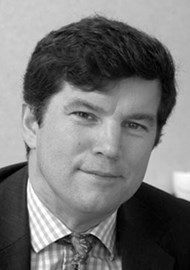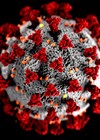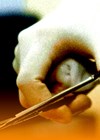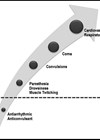The COVID-19 pandemic has affected almost every aspect of life. Ken Stewart, Consultant Plastic Surgeon and Special Advisor for The PMFA Journal, outlines for us how his own plastic surgery department has adapted to the crisis.
What did you do during COVID grandad/ma?” is hopefully a question that we can all look forward to in our dotage, in much the same way as we asked our grandparents of their wartime experience. For ‘non-core’ specialists, finding worthwhile activity to help respond to the global crisis has challenges.
For some at the latter stages of their career or with significant co-morbidities the clear and logical response to the threat is to shield. But many of those will, even from the confines of their homes, have found ways to help. One of our local surgeons has, for example, been heroically 3D-printing visors for hospital colleagues. They are prevalent and much appreciated in our hospital, particularly in the early stages when personal protective equipment (PPE) supply lines have been challenged.
For others, continuing to work in NHS hospitals will be possible although chronic health conditions may preclude working in ‘red’ areas with COVID-19 patients. But there is much that they can, and have, done. In our own department our ortho-plastic hand surgery team set up a minor injuries unit to offload patients from A&E. In parallel they set up a day-case, local anaesthetic hand trauma service. “We have had that for years” I hear you cry! And indeed, within our regional plastic surgery service we have been trying since 2002 to establish such a service based on successful longstanding services elsewhere in the UK, such as Chelsea and Westminster. Amazing how quickly the barriers to change have fallen and common sense has prevailed. And so, in the space of a week, we established changes that for years had faced supposedly insurmountable barriers.
One of my own earliest decisions in the pre-crisis days was to postpone all elective ear reconstructions involving rib harvest. Somehow, compromising respiratory function as the virus approached did not seem wise. Elective surgery has of course been reduced to treating, at the time of writing, only aggressive cancers. In our skin cancer practice we are down to excising melanoma and squamous cell pathology with the occasional aggressive basal cell carcinoma (BCC) thrown in. Our oral pharyngeal specialists initially struggled with the ever-changing guidance on PPE during aerosol-generating procedures. But again, at the time of writing, clarity regarding full PPE for all cases involving intubation has prevailed. How that pans out with international supply chains dwindling remains to be seen. And, huge respect to our ENT, maxillofacial, ophthalmology and head and neck colleagues. We are aware that their mortality rates in China, and indeed it would seem in the UK, have been amongst the highest in healthcare workers. We salute their bravery.
Some of us are keeping reasonably fit. Cycling to work has never been more pleasant. And so, working with COVID-19 patients has a reasonable risk balance. Many will have volunteered to work in A&E, medical wards or intensive care. It becomes ever more apparent that intensive care nurses are the most underpaid, undervalued and under-prevalent resource within the health service. And thus, many will have begun or completed the process of trying to up-skill in the art of ventilator care, pump management and general nursing care of patients in unconventional positions, with unfavourable habitus and with a frightening pathology. One suspects that it takes at least a year for an intensive care nurse to become fully proficient. What hope have we in a few short hours? But try we should.
Back in the calm of our offices, clinics go on – by telephone largely. The challenges of conversing and communicating adequately with a frail patient with a BCC by telephone are readily apparent. Somehow Montgomery vs. NHS Lanarkshire levels of informed consent seem a distant memory. And complex decision-making for more aggressive malignancies now involves assessing the risk of attending hospital versus the risk of staying safely at home with an enlarging tumour. How quickly will it grow? How quickly will the pandemic end? Impossible to answer with any certainty. One only hopes that our legal friends will extend the hand of sympathy during the inevitable wash-up.
Innovation, of course, will be another feature of this crisis. Much as wartime saw developments such as the Mulberry harbours and ‘funny’ floating tanks, so COVID-19 will produce new ideas through rapid collaboration. Many will be aware of Slack™ and groups of engineers who have sprung up. Our own interactions have led to a rapid grant application and ethics proposal for 3D-printed facemasks. Hopefully, this will result in less face-fit failures and new possibilities for local production. Meanwhile, hats off to Rogan Corbridge, our ENT colleague from Reading, who, along with others working on similar lines, has found innovative ways of converting ‘snorkel’ facemasks to healthcare use. Of course, local NHS services have inevitable reluctance to endorse such developments. In part, one wonders if this is fear of reputational damage. But one must sympathise with decision makers in that regard. How can one possibly quality control such items and guarantee they provide adequate protection? Damned either way one must opine.
And a final toast must go to NHS procurement. Few of us would have given them a second thought prior to COVID-19. We have all taken our masks, our gowns, our gloves for granted. Our only cognisance was probably to moan when our favourite suture wasn’t available in boxes of 100. But what a job they have done, under awesome pressure, with unfathomable demand and offers of help. They have responded as heroes: calm, rational and objective. One cannot expect universal praise for governments – missteps and ill-focused attention have been evident in the early days. But to our procurement departments and the dedicated individuals who work in that specialism – we can only conclude, I think, that they done their duty and more.
Declaration of competing interests: none declared.
COMMENTS ARE WELCOME









